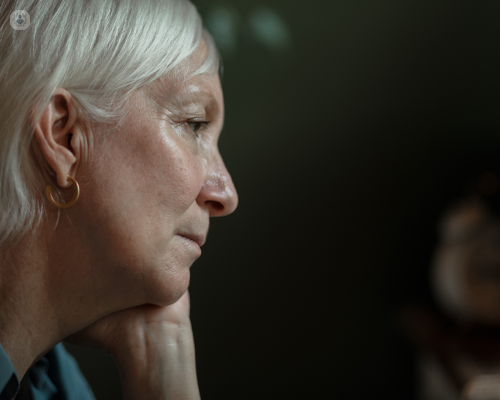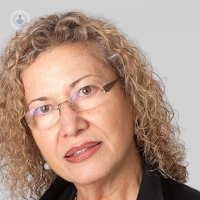Are your bones at risk if you are fighting breast cancer?
Written in association with:Breast cancer is the most common cancer in women, with around one in eight women being diagnosed with breast cancer during their lifetime, with the majority of women being diagnosed after menopause.
Hormonal therapy (called adjuvant therapy) is usually given after the operation and following chemotherapy and/or radiotherapy for those women who had oestrogen receptor (ER) positive tumours.
Both chemotherapy and some types of hormonal therapy speed up osteoporosis and the loss of bone density. Here, leading consultant endocrinologist Professor Gordana Prelevic takes a look at the different medications used in the treatment of breast cancer, and the effects they have on bone health.

What is Tamoxifen?
Tamoxifen has a beneficial effect on bone density in postmenopausal women, though its clinical use for patients with breast cancer is limited to five years.
How do aromatose inhibitors affect bone health?
Aromatase inhibitors (anastrozole, letrozole, exemestane) reduce the amount of oestrogen circulating in the body which may lead to osteoporosis. The risk of developing osteoporosis depends on how healthy the bones were before the breast cancer treatment.
Women who had good bone density before breast cancer treatment are less likely to develop osteoporosis while on aromatase inhibitor treatment than those who already had low bone density.
Women who are at a particularly high risk of experiencing negative effects of the treatment on their bone health are recently menopausal women (within four years of menopause), those who previously had chemotherapy, and those who previously had low bone density (BMD).
Other factors which increase the risk of developing osteoporosis while on this treatment are:
- previous fracture
- family history of hip fracture
- being thin
- smoking
- having three or more alcoholic drinks per day
- steroid treatment
- certain diseases such as rheumatoid arthritis
Bone loss in women on aromatase inhibitors appears to be continuous (while the woman is on therapy) with an increased risk of low trauma fracture by about 50 per cent. However, recent data suggest that after the treatment ceases, this bone loss is reversible.
Standard treatments for osteoporosis like bisphosphonates (alendronic acid, risedronate, pamidronate and zoledronic acid) and denosumab are highly effective in preventing bone loss induced by aromatase inhibitors.
What is your advice for women diagnosed with breast cancer concerned about osteoporosis and bone health?
Any woman with breast cancer who has had low trauma fracture or is postmenopausal or on aromatase inhibitors therapy should have a DXA scan to assess her bone mass density.
If a patient T-score is below -2.0, treatment with bisphosphonate or denosumab should be initiated in addition to basic preventive measures.
The preventive measures include:
- increasing your calcium intake to 1 - 1.5g daily (there is approximately 125mg in a glass of milk)
- optimising vitamin D levels (usually achieved by taking 1000 - 2000IU of vitamin D daily)
- weight-bearing and muscle-strengthening exercise
If you are concerned about the effects of breast cancer treatment on your bone health, make an appointment with an osteoporosis specialist like Professor Prelevic. Visit her Top Doctors profile to arrange a consultation.


